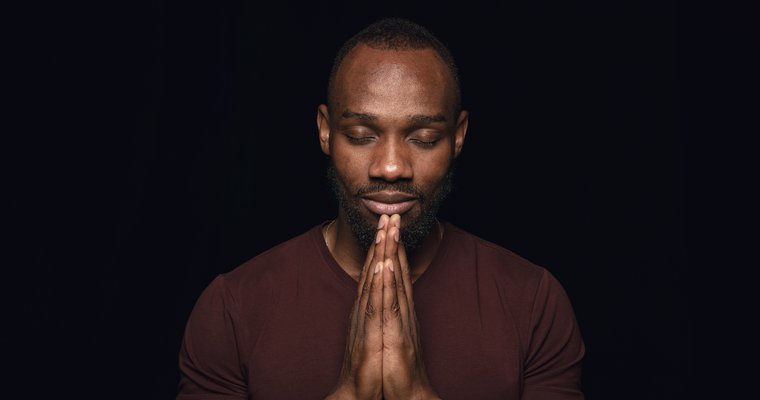Say these words when you pray

 ChatGPT
ChatGPTLearning to pray is a lot like learning to ride a bicycle. My brother helped me sit on it, told me to keep my hands on the handlebars and my feet on the peddles, slowly trotted beside me helping me stay balanced, then he let me go.
This process is similar to Jesus' lessons in prayer—do and learn. He gave the disciples words which helped them climb on. These same words can do that for anyone who is willing, today.
Don't worry how long you've been a believer. It wasn't my first time riding a bicycle; it was my first time without training wheels. Jesus' disciples were not new to praying either; John had taught at least a couple of them. They longed to pray like Jesus. Wouldn't you like to pray like Him?
How Jesus prayed
Jesus was a "sho-nuf" pray-er, meaning He was the best! Though we have record of only few of His prayers, we know something about His frequency—He prayed often—and His range of subjects—He prayed about everything.
He prayed before selecting His disciples, before feeding the five thousand, before raising Lazarus from the dead, as He awaited the hour of trial to come, as well as on Calvary in the heat of His sufferings. And, we know of His results! John recorded Him in John 11:42 saying, "And I knew that thou hearest me always."
Teach us, Jesus
One of the disciples pleaded with Jesus, "Lord teach us to pray." Luke does not mention which disciple, but not one of them objected.
Hear the words Jesus taught His disciples to say in Luke 11:2-9, and again in Matthew 6:13. Unlike Jesus' prayer in John 17, these words are a model for Jesus' disciples and all believers to use. Read each word slowly, pausing after each line as if discovering all 75 of them for the first time. Take a quick break, open your Bible, and read them now!
More than just providing words for us to use, Jesus gives us expectations for praying. The Lord says, "When ye pray…" not "if ye pray…" This implies regular, if not daily praying.
By the way, when do you pray?
Do, then teach
Jesus did not teach on prayer first; He gave them words. Words to begin talking with God immediately. These words encompass areas essential to life and are surprising in their simplicity.
However, these words do teach a lot about prayer. Prayer focuses our attention on God. In the model, 11 of the 15 lines are about God; only 4 lines about men. Prayer is conversation with God our Father. Prayer is opportunity to apologize to God, to seek God's forgiveness for our debts, to request His help, especially with the evil one.
Prayer lets us declare that everything belongs to Him. And finally, prayer includes praising God. So much is covered when praying these words.
When should we change words?
But when do we change the words? Life will teach that well, trust me. When you come to the words, "And give us this day our daily bread," something in your own life's experience may press you to mention it by name. The change-motivator may be your desire or need for a new career opportunity, or the challenge of an increase in expenditures while receiving the same income.
Further, the motivator could be the challenges of navigating a teenager or young adult through this seemingly too-connected world, or a wish for a conflict "time-out" amidst this world that knows trouble all too well.
Of course, any transition away from physical health toward any sickness would be change-motivator enough.
These things and many more will invite themselves into your thoughts and shout at you, "Mention me!" And believe me, you will!
More on Prayer
- This may be why God hasn’t answered your prayer… (by Jordan Raynor)
- Prayer in the workplace (by WorkLife Success)
- But can you heal my boy? (by )
- 4 ideas for enhancing your church’s prayer ministry (by Terry Powell)


